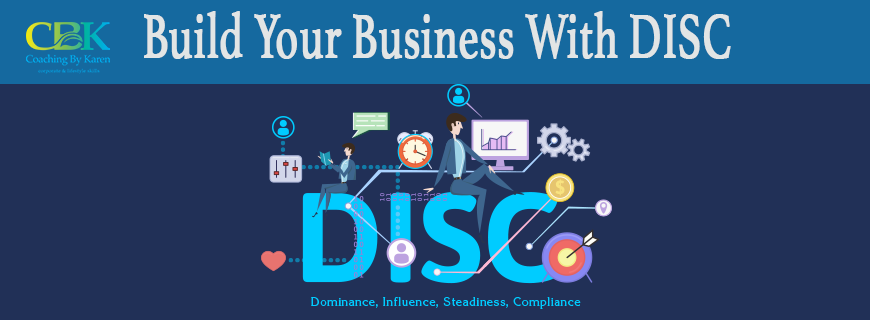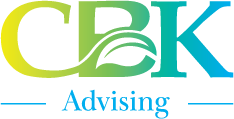How DISC Can Help Your Business Succeed

(Not to mention how it can impact you personally!)
By Executive Coach, Karen D. Nutter
The first time I heard about DISC Assessments, a colleague was telling me about her employer who had everyone on her team do the assessment, and she learned she was a “High I” and “that explains everything about me” she said, after filling me in on additional details for ten minutes straight, without coming up for air!
At the time, I had no idea I would one day train human resource professionals, recruiters, coaches and consultants on how to use DISC in their business, but DISC has made a significant difference in my life, and that of my clients.
While many people have heard of DISC, and several have taken a DISC Assessment, few people are able to properly explain what it is and how it can help a business succeed. So, I thought it might be helpful to review DISC, so you can see how it may benefit you, both personally and professionally.
What DISC Is
DISC is defined by Target Training International as “the universal language of observable behavior.” It is a behavioral assessment that explains how a person does what they do. Many people mistakenly call DISC a personality profile, when in truth, “personality” includes far more than our behaviors, as it is formed by our values, beliefs, character, temperament, and more.
DISC is the “how” behind your “what” in that it looks at how our behavioral style impacts the way we communicate, complete tasks, and interact with others. Each person has their own behavioral makeup influenced by four behavioral styles: Dominance, Influence, Steadiness, and Compliance. Our behaviors can be analyzed along a continuum for each of these styles, where there is no good or bad, and a “high” or “low” is neither a positive or negative, as there are pros and cons across the continuum. The key to DISC is understanding how these styles affect a person’s behavior, and then applying that knowledge to how we interact with each other.
No Two Are Alike
While DISC is a common term, no two DISC assessment tools are alike. While the DISC theory was created by William Marson, it was never patented, so many different versions have been created over the years, and some are more scientific in nature than others. In my work with clients and corporations, I use a DISC tool that is constantly being tested and fine-tuned. I also believe in combining DISC assessments with other human performance information such as Motivation or EQ assessments as I believe this offers a more complete measure of a person.
How DISC Can Help Your Business
As I was delivering my most recent DISC Facilitator training, I asked each person in the group to share what they learned that surprised them the most. One trainee said she was not expecting to learn so much about herself, and how her behaviors can be perceived by others. Another participant indicated that he now feels he has a better understanding of other people in his life, where they are coming from, and how to better communicate with them.
During DISC workshops and debriefings, we review information for the mutual benefit and growth of employees and their employers. Aside from offering an overview of General Characteristics specific to the assessment taker, the report provides a list of talents and behaviors that provide “Value to the Organization.” However, it is the “Checklist for Communicating” that most companies find useful.
- Team Communication
Last year, during a DISC workshop with a local business team that was having trouble, I ran a team report that provided each person with a Checklist for Communicating with each team member. The Checklist provides both “Ways to Communicate” and “Ways NOT to Communicate.” As we looked at the comparison report together, each person was able to recognize how to adapt their communication style to more effectively interact with others on the team. For instance, “Rick” has a High D behavioral style. High D’s like communication to be clear, specific, and organized, without a lot of rambling or wasted time. On the other hand, “Bruce” is a High S who needs time to think about and consider new ideas, and doesn’t like it when people seem insincere or too formal. As they reviewed the report, they could easily see where some of their breakdowns in communication occurred, and why. Now, they are able to adapt their style to ensure they are being truly heard and understood, and the reduction in discord has created an increase in team (and individual) productivity.
- Knowing Your Customers
Anyone in sales will tell you how important it is to be able to size up your customers so you can talk to them at their level and be able to close the sale. Over the course of my career what I have found is that in order to work effectively with anyone, it helps if you can recognize and understand their behavioral style.With proper DISC training, you not only learn about your specific behavioral style, and how it affects your actions and communication, you also learn about the other main styles and how to recognize and communicate in a manner that resonates with them. The scientific research behind quality DISC Assessments has been able to pinpoint key characteristics for each behavioral style from the pace of their speech, their walk and gestures, the look of their desk and office, and even the words they often use and tone of voice.
Recognizing and understanding different DISC styles helps you adjust how you approach and communicate with customers, clients, colleagues, and even friends and family members. By doing this, you are better able to get your point across in a manner that they will understand. Through this, you can develop stronger relationships that benefit everyone involved.
DISC Assessments are a great tool for anyone looking to better understand themselves, better communicate with their team, or create a better atmosphere for relationship building. When you think about it, our success lies in the relationships we build.
“In business it’s about people. It’s about relationships.” ~ Kathy Ireland
If you would like to learn more about DISC workshops, or the next CBK Certified DISC Facilitator Training, please visit my website,
or contact me directly.

